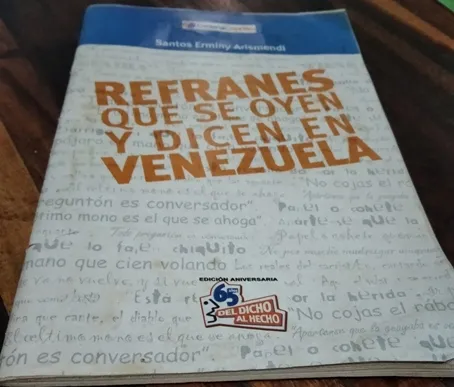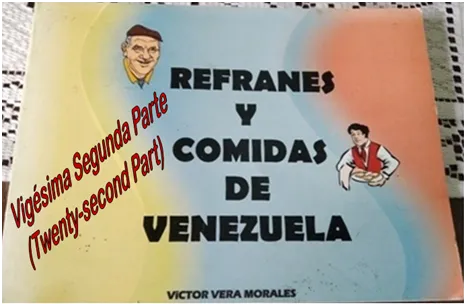

Este refrán se refiere a que la obtención de beneficios de alguna actividad puede estar muy lejana al momento actual, por eso la analogía con la siembra de cocos, ya que un cocotero tardará entre 6 y 10 años en dar su primer fruto, pero alcanzará un nivel aceptable de productividad a los 15 o 20 años de ser sembrados, ¡hay que esperar un montón de años!
Se hace referencia, de un modo si se quiere despectivo, a que las amenazas de alguien más débil o mucho más joven, no deben causar alarma en alguien con más poder o adulto.
Este refrán alude a que cosechamos lo que sembramos, y si hemos sembrado espinas, obviamente, caminaremos encima de un terreno espinoso, por lo cual no podemos esperar caminar sin hincarnos los pies. Muy sabio refrán.
Los cerdos pueden tener la cola en espiral o recta, y aún cuando tiene 20 vértebras, es muy corta; adicionalmente, a los cerdos en general y a las cerdas en especial, se les corta la cola, para evitar que sea mordida por otros animales; así que difícilmente encontraremos una cerda con rabo o cola, por lo que será imposible enlazarla por allí, y demasiado difícil aún cuando conserve la cola. Por tanto, este refrán se utiliza para señalar el grado de imposibilidad de hacer algo.
Refrán muy cierto, ya que cuando nos envidian es porque somos felices o tenemos algo valioso, en cambio, cuando se compadecen de nosotros, significa que estamos en una situación mala que sólo inspira lástima. Mejor estar bien que mal.



This saying refers to the fact that obtaining benefits from some activity may be very far from the current moment, which is why the analogy with the planting of coconuts, since a coconut tree will take between 6 and 10 years to bear its first fruit, but it will reach a acceptable level of productivity 15 or 20 years after being sown, you have to wait a lot of years!
It refers, in a derogatory way, to the fact that threats from someone weaker or much younger should not cause alarm in someone with more power or an adult.
This saying alludes to that we reap what we sow, and if we have sown thorns, obviously, we will walk on thorny ground, for which we cannot hope to walk without putting our feet down. Very wise saying.
Pigs can have a spiral or straight tail, and even though it has 20 vertebrae, it is very short; additionally, pigs in general and sows in particular have their tails cut off, to prevent it from being bitten by other animals; so we will hardly find a sow with a tail, so it will be impossible to link it there, and too difficult even when it retains the tail. Therefore, this saying is used to indicate the degree of impossibility of doing something.
Very true saying, since when they envy us it is because we are happy or we have something valuable, on the other hand, when they pity us, it means that we are in a bad situation that only inspires pity. Better to be good than bad.

Dear readers, below I place the links of the first nineteen posts, in case you want to read them:
Víctor Vera Morales. (Agosto 2004). Refranes y Comidas de Venezuela. Editado por el Instituto Municipal de Publicaciones de la Alcaldía de Caracas.
Santos Erminy Arismendi. (2006). Refranes que se oyen y dicen en Venezuela. Cadena Capriles, Caracas. Venezuela.
- Fotos de mi autoría, tomada con un teléfono REDMI 8A, intervenida con WordArt / Photos of my authorship, taken with a REDMI 8A telephone, intervened with WordArt.
- Los diseños incluidos en esta publicación, han sido elaborados por mi persona con la aplicación CANVA / The designs included in this publication has been made by me with the CANVA application.
In the event that it is required to use the content or images of this post and my other publications, I would be grateful if my authorship (Fabiola Martínez) was made and the corresponding link was cited. Thank you.

 CommunityIIDiscord
CommunityIIDiscord